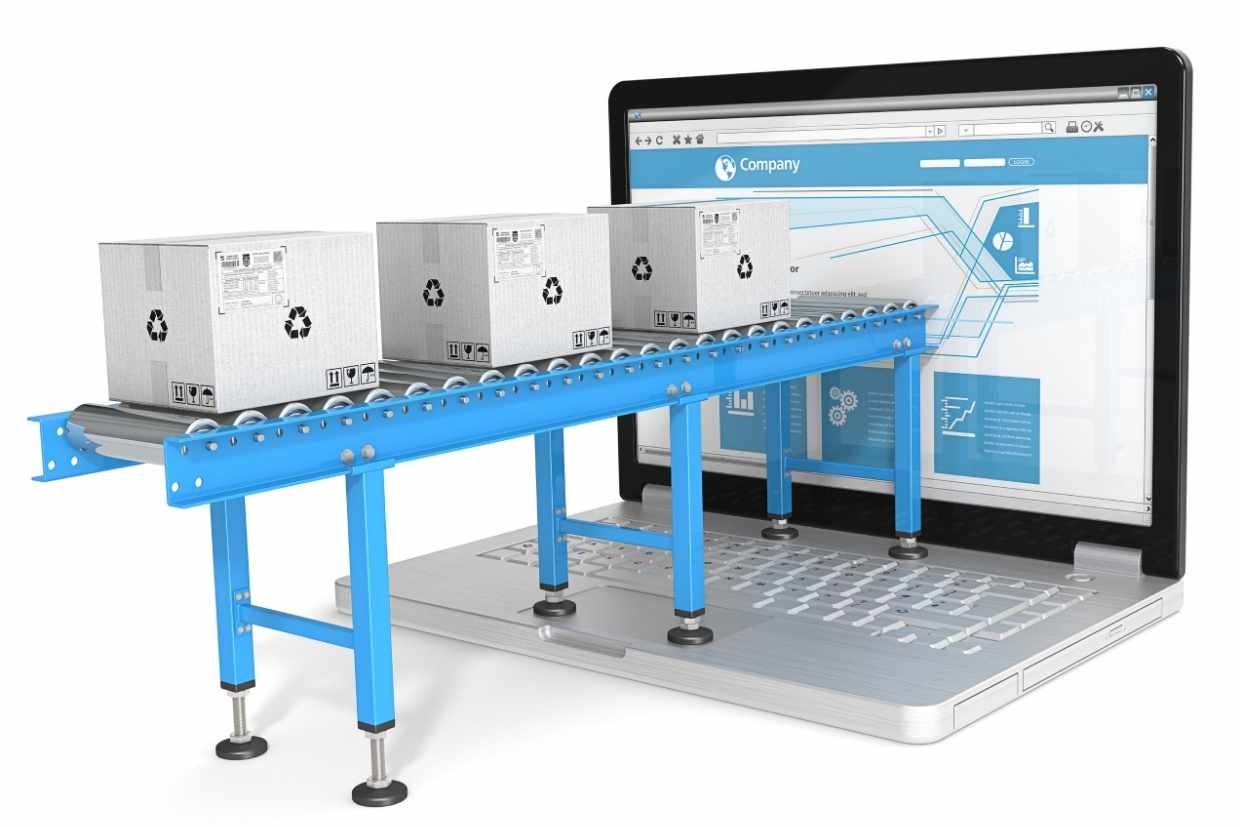Integration of a distribution management system is a huge financial commitment. It requires plenty of thought to find the ideal and the best distribution management system for your business based on the current needs and wants. Considering how it might be a hassle for individuals, this article primarily covers the following:
How to Select the Best Distribution Management System (DMS)

1. Align your needs and wants.
Your needs and wants must be considered as the foremost factor when you are about to select the best distribution company. In other words, before evaluating the different DMS, it is best to identify and comprehensively define your requirements so that you won’t be lost in the middle of the pathway to your ultimate goal.
First, you need to make a list of the requirements needed for the upgrowth of the distribution management sector of the company and, following up with it, classify them as per the needs and wants. In this way, you could later easily identify what is required to be done then and there and what could be done afterward. At this point, it will be beneficial if you consider factors such as the company size, inventory management needs, report and analytics, and much more, which will be discussed later on as well.
2. Carry a thorough research.
After identifying the needs and wants, carry out in-depth research based on your requirements. In this instance, check on what you can potentially get from a distribution management system from different vendors and read through them. At this point, you can check the reviews from other clients, gain ideas from their portfolios and check how the DMS has worked for others on a positive note. Additionally, you can also evaluate the differences between each of the DMS platforms and think about the pros and cons of each of them in order to select the ideal DMS system for your company.
3. Assess your capital resources.
The current financial status of the company and the budget you are planning to render for the purpose of purchasing a distribution management system is the next most crucial aspect to consider in terms of capital resources. When you have begun your search, you will be coming across a broader variety of cost ranges from different vendors in relation to DMS platforms. At this stage, you might have thought of purchasing the cheapest platform out of all. Yet, this might not be a commendable thought to stand with; because the cheap platform might not be the one you require to meet your needs.
Just as the cheapest might not be the ideal, the most expensive DMS system might not be as well for the same reason. Hence, make sure you focus your valued instincts on the needs, objectives, missions to pertain and so on when you are about to assess and separate your budget to the distribution management system.
4. Scalability and adaptability.
Not every distribution management system suits your company when it is in regard to scalability and adaptability. If the question why arises in your mind, that is because every DMS is unable to be scalable in size and adapted easily when your company begins to grow in future. In this case, there will be a need to integrate a second DMS system which will definitely cost you for the second time.
Thereupon, look up a DMS where you can count that you will have enough scalability and would be able to adapt easily in the future when the company requirements are changing.
5. Ease of integration.
Another part that is a must to check is the system’s integration capabilities. As it was mentioned earlier, the ability of a system to be scalable and flexible should also have the ability to integrate other necessary systems as the company grows. For example, your distribution management should be able to smoothly integrate with systems such as Customer Relationship Management systems (CRM), Accounting software, Enterprise Resource Planning Software (ERP), and Inventory Management Software (IMS).
6. Feasible, user-friendly software.
A Distribution Management System should be able to make things at ease rather than a huge burden to take with. Therefore, it is of utmost importance to go for a distribution management system that is feasible and user-friendly. This means that this brings convenience for the employees to navigate throughout without hassle since this is a critical tool for the entire company.
Additionally, if there are new interns or trainees that are going to make use of this platform, the training should also be flexible because if not, the company will have to increase the training costs and worry about having to be used to excessive attempts to get things done.
7. Capability of managing data and analytics.
Being user-friendly is not adequate. The DMS should have the capability to manage data and analytics precisely. In this instance, one of the most critical aspects is having real-time visibility of data, which will aid your company in knowing whether the products are received by the end customer or not, stockouts, whether the products are up to date or not and much more.
On top of that, eco-system data sharing added into this will be beneficial as well. This will assist your business in sharing and managing data with multiple organizations, communicating and following up with multiple partnerships and benefits. Thus, when you are selecting a Distribution Management System, ensure that this feature is easily available.
8. Security.
In terms of security, it is vital that there are necessary ways to keep the data in your company secured and accessible only to those who are in the necessary sector of the business. This is a must since you are also obliged to protect the data and secure the data of your customer base or the suppliers, which is a part of your business.
Therefore, make sure that you will be integrating a distribution management system with high-security levels.
9. Ownership-costs.
The ownership cost refers to the cost after you have purchased or the ongoing costs of the distribution management system. It might include licensing costs, maintenance fees and update costs and so on. Even though you cannot get an accurate cost, it will be advantageous on your side to have an idea about the ownership cost.
This will help you to allocate a certain amount for this purpose so that you won’t get stuck in between.
10. Timing.
To integrate a distribution management system for your business, it would generally take 6 to 8 months. So, it is important to know from the vendor of the DMS the time of integration and plan accordingly. If it takes way longer than you expect or if the reviews on the vendor pertaining to the time of integration seem to be negative, try to consult another vendor or go for another option or if it is not possible, try to allocate and plan the implementation of the Distribution Management System methodically and strategically in a way that benefits your company.
11. A realistic implementation plan.
Not only if the timing is not right, but it is always the best measure to have a realistic implementation plan beforehand. After selecting the best DMS product for your business and since it is a complex process, coordinate with the experts in order to plan and get the work done. During the follow-up plan, you also need to consider ways on how you will assemble this new system for your employees and new trainees and make things at ease for them as well.
What can go wrong if you fail to select the best distribution management system?

Here are a few consequences that you will have to face due to the lack of a reliable DMS:
1. Less productivity and efficiency.
A low-grade DMS would lead to less productivity and efficiency, which means that it will be lacking to give an efficient, streamlined process leading to order delays, difficulties in managing partnerships, decreased customer satisfaction and might even ultimately lead to the downgrading of the business reputation.
2. Defective inventory management.
Inventory management plays a vital role in the sector of distribution management, and if the DMS is maladapted, it will bring negative consequences such as stockouts, being overstocked, and stocks expiring, which will lead to a loss of sales and a valuable customer base.
3. Incompatible integration with other systems.
A below-par distribution management system would sometimes not give you the opportunity to integrate with other required systems, making it difficult to exchange data and communicate across a wide range. Apart from this, it will also lead to data inconsistency, lack of proper organization of data and also lead to missing many chances for the growth of the business.
4. Absence of visibility and proper real-time data tracking.
A low-graded distribution management system may lack visibility and accurate real-time data tracking, which can mislead the data and analytics very often. This will make it a hard time to monitor, analyse and optimize data accurately and reliably for the business.
5. High maintenance cost.
Another challenge that your business will have to face with a subpar distribution management system is the cost of maintenance due to its inability to provide high results and additional investments in regards to adding up required features and options, high training costs and so on.
Simply, this will cause an unessential bearing of high upfront costs and ongoing costs, which will later reduce the Return On Investment (ROI), downgrading the company benefits.
Questions to ask yourself before purchasing a DMS

Here are a few questions to be asked:
- Is it affordable for the company at the moment?
- Is it a prior necessity to purchase a DMS system at the moment?
- Is the software about to be purchased configurable?
- Will the company be able to manage ongoing costs?
- How reliable would it be to work with a DMS rather than not having one?
Final touch up.
The Distribution Management sector is growing immensely, and the competition is increasing day by day. The new trends coming up with it keep a business one foot a step further, and all these new trends will follow up with the best types of distribution management systems that you need to consider as an uplifting evolutionary business. If you have not thought about it and simply have nowhere to start, Simplr will be by your side to help you out!



